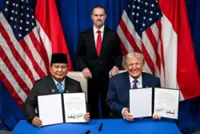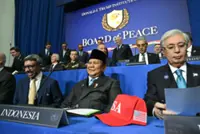JAKARTA (The Jakarta Post/Asia News Network): The House of Representatives is pushing to quickly pass a set of bills that will create new provinces in Papua, despite criticism that the government has been neglecting indigenous people’s voices in the bill’s deliberation process.
In a plenary session last week, lawmakers unanimously endorsed three bills that will stipulate the establishment of the provinces of South Papua, Central Papua and Papua Central Highlands.





